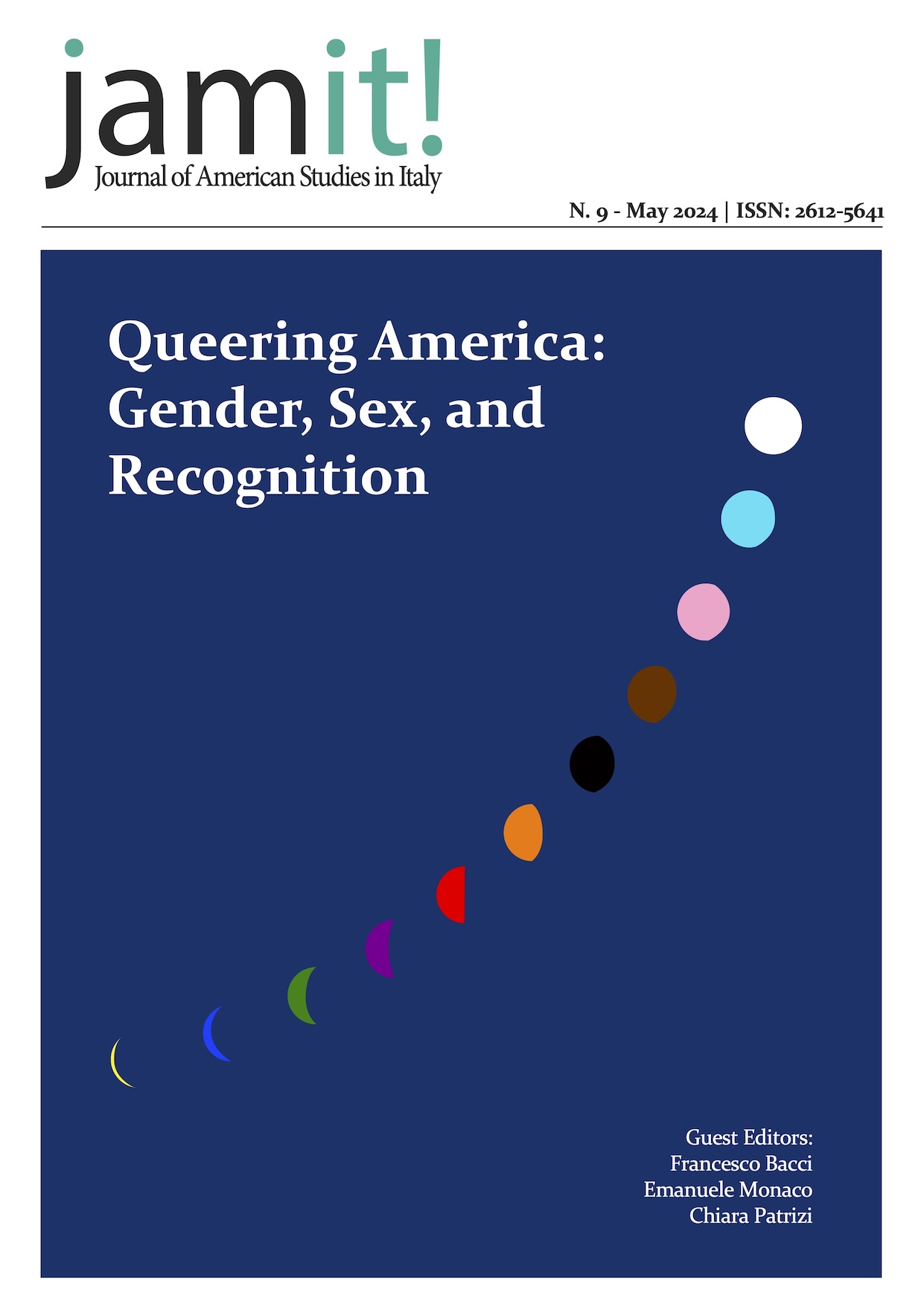Queering American History
New Perspectives and the Impact of Archival Activism
DOI:
https://doi.org/10.13135/2612-5641/8222Parole chiave:
Queer, Queer History, American History, Community ArchivesAbstract
In the 1620s, Thomas Morton broke from Plymouth Colony and founded Merrymount, which celebrated same-sex desire, atheism, and interracial marriage. Transgender evangelist Jemima Wilkinson, in the early 1800s, changed her name to “Public Universal Friend,” refused to use pronouns, fought for gender equality, and led her own congregation in upstate New York. In the mid-nineteenth century, internationally famous Shakespearean actor Charlotte Cushman led an openly lesbian life, including a well-publicized “female marriage.” And in the late 1920s, Augustus Granville Dill was fired by W. E. B. Du Bois from the NAACP’s magazine the Crisis after being arrested for a homosexual encounter. These are just a few moments of queer stories that fill what we call U.S or American history.
But what does it mean to queer American history? How might queering it move us to ask new and different questions about it, regardless of whether we write about intimacy, eros, sexuality or love? If early scholarship chronicled the exploits of queer-identified people over time for an audience already open to the history of sexuality, the contemporary methodological struggle is aiming to suggest ways in which queering history might aid us in thinking more critically about how conventions, ideals, norms and, above all, practices gain traction and resonance in our history writing.
To queer history rather than just writing histories of queerly situated or queer-identified people is to draw on a wide array of conceptual tools—often from other disciplines—to lay bare common assumptions about the world in which our subjects lived. It means stepping away from the family album approach and adding new layers of complexity to a shared historical past.
This essay, in the spirit of decades’ worth of scholarship that sees queer as much as a methodological intervention as an epithet, sketches out: the way queer history has been defined by academia and the issues and limits that emerged from research and scholarship; what it means to queer our common understanding of American history; where queer history gets its fuel, the archive, what it means to reconstruct and preserve the memory of discriminated and written off communities and individuals.
##submission.downloads##
Pubblicato
Fascicolo
Sezione
Licenza
Authors who publish with this journal agree to the following terms:
- Authors retain the copyright and full publishing rights for their submissions to the journal.
- Authors grant the journal right of first publication with the work simultaneously licensed under a Creative Commons Attribution-NonCommercial-NoDerivatives 4.0 International License that allows others to share unedited work for non-commercial purposes with an acknowledgement of the work's authorship and initial publication in this journal.
- Authors are able to enter into separate, additional contractual arrangements for the non-exclusive distribution of the journal's published version of the work (e.g., post it to an institutional repository or publish it in a book), with an acknowledgement of its initial publication in this journal.
- Authors are permitted and encouraged to post their work online (e.g., in institutional repositories or on their website) prior to and during the submission process, as it can lead to productive exchanges, as well as earlier and greater citation of published work (See The Effect of Open Access).




